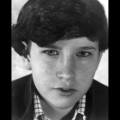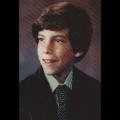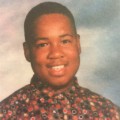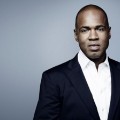Story highlights
- S.E. Cupp recalls being the victim of bullying when she moved to a new school in her teens
- Now, as the mother of a young son, she is thinking about how she will equip him to cope
S.E. Cupp is the author of "Losing Our Religion: The Liberal Media's Attack on Christianity," co-author of "Why You're Wrong About the Right" and a columnist at the New York Daily News. The opinions expressed in this commentary are solely those of the author.
(CNN)I moved around a lot as a kid. For me it was always an adventure. It was tough to change schools and continually be the new girl, but I found upside in every new place.
Boston winters were a nice change from Arizona summers. My school in Michigan was the best I ever attended. My ballet classes in Maryland opened a whole new world of training. And with my parents as the supportive constant, no move was ever too challenging.
Until I hit 13. We moved from Maryland to Massachusetts and I came into a new school in the middle of the year.
I'd always made friends fairly easily before. But this was different. The girls had long-formed cliques. The boys were in the middle of puberty and couldn't decide if they wanted to pull your hair or ask you out. High school was on the horizon and no one was going to let this new interloper upset the social dynamic that had been in the works for years. It was the worst four months I'd ever endured.
The pressure to fit in and be popular is as old as Methuselah. (Literally -- it was 969-year-old Methuselah who tried to persuade his people to listen to Noah, his grandson, about the coming flood. It was peer pressure of Biblical proportion.)
The pressure to fit in was why I made my mother buy the knockoff shoes that looked like the ones everyone else was wearing (but that we could afford). It's why I tried to befriend the popular girls who then turned on me in the cafeteria and threatened to beat me up after school. It's why I didn't tell on the boy who threw my science project out the window, in hopes that he'd spare my next effort.
As Marion Underwood and Robert Faris' excellent CNN piece makes clear, the difference now, though, is that the challenge of fitting in today has media amplification.
"Even before the dawn of social media," they write, "adolescents cared deeply about fitting in and were hurt when they felt excluded from face-to-face interactions or by seeing the popular kids hang around together. What is different now is that social media affords frequent opportunities for all teens to see pictures of parties they were not invited to and friends having fun without them, images they would be spared if social media did not exist."
So true. I can't imagine my 13-year-old self, na├пve, insecure, earnest and easily-wounded, being equipped to handle today's unwieldy world of social media, where my shoes would have been blasted on Instagram, and my cafeteria incident caught on video and posted to Facebook and my efforts to fit in ridiculed on Snapchat.
But while social media may reach more people (my incidents never had the potential to "go viral") were kids like me any less traumatized by bullies because they had a smaller platform? Were the temptations to fit in any less great? Was being an outsider really any easier?
Now that I'm a parent of a 10-month-old son, I'm clinging desperately to the prospect that by the time my little one is an adolescent, something will have changed for the better somehow. But I think that being 13 is always going to be tougher for some kids than others. The choice we have as parents -- especially as parents were either bullies or bullied -- is what kind of kids do we want to raise?
I could be honest and tell you I've had long conversations with my husband about trying to raise a "socially-adept" child, who fits in well, who makes friends, who excels in certain areas so that he isn't the target of bullying. But we've had longer conversations about trying to raise a child who is happy, comfortable, confident and secure, so he knows he is loved and accepted for who he is, regardless of anyone he meets who disagrees.
Looking back on my difficult year, I'm not sure I'd wish I could have been popular. I do wish I'd been a little more secure.
I'm also keenly aware that bullying has become frighteningly easy today. It's anonymous and instantaneous, with tremendous reach. Raising a kid who won't be a bully is far more important to me than raising a kid who will be popular.
I think I'm pretty tough. Mine wouldn't be the best job -- regularly dodging insults not only from social media trolls but also from colleagues with legitimate jobs (and, inexplicably, spouses who love them!) -- if I had thin skin.
There's name calling, of course. There are death threats, sure. But then there's stuff you don't prepare for, like that time a package arrived with bloody chicken parts inside. Or that time a pornographer depicted me in one of his magazines performing a sex act. Or that time Keith Olbermann suggested I should have been aborted. For real.
When we talk about bullying, it's hard to tell young people that all that much changes when you hit adulthood. I think constantly about raising our son in a culture of cyberbullying, cyberstalking, online harassment and general terribleness (and that's among the adults!).
Of course, we're tougher as adults than kids are, so we can handle this with more composure and aplomb. The high-minded mom advice to "just ignore them" rarely solved any problem at 13, but now it does in fact often do the trick.
As difficult as it was at the time, I know that my own adolescence prepared me for an adulthood where the bullying and bad behavior continues. But it's also informing how I plan to raise a child in an era of bullying.
Being 13 today seems totally overwhelming. But it was pretty overwhelming then, too. If I could tell my 13-year-old self one thing then (and what I will tell my future 13-year-old son) it wouldn't necessarily be that it gets better -- adulthood is hard and people are still jerks. It's that you will get better. Better at coping. Better at not caring. Better at negotiating these challenges. Better at loving yourself. Put most simply, better at being you.





























































